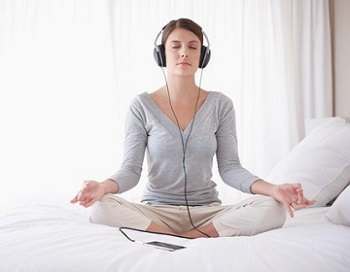Your routines and daily activities, the things you automatically do every day without thinking about them, are the things that might be keeping you awake. These could be anything from what you eat and drink, to how you exercise or don’t exercise, or to the way you get yourself ready to sleep at night.
That’s a troubling thought, but on the positive side it’s actually quite encouraging. You don’t need to investigate herbal remedies or stock up on sleeping pills to solve your sleep problem. All you need do is change what you routinely do. Simple, right?
 Sleep experts call this behavioral modification or behavioral therapy. The premise is that over time you’ve “conditioned” yourself in such a way that you’re having trouble sleeping, and to fix the problem what you need to do is to “condition” yourself in a positive way to get a good night’s sleep. Sound good? Maybe. After all, if you did it perhaps you can undo it. But maybe that’s easier said than done, especially if you’ve suffered sleeplessness for a long time.
Sleep experts call this behavioral modification or behavioral therapy. The premise is that over time you’ve “conditioned” yourself in such a way that you’re having trouble sleeping, and to fix the problem what you need to do is to “condition” yourself in a positive way to get a good night’s sleep. Sound good? Maybe. After all, if you did it perhaps you can undo it. But maybe that’s easier said than done, especially if you’ve suffered sleeplessness for a long time.
Before you begin, however, schedule a visit with your doctor. Insomnia can be caused by an underlying physical issue, and you need to ascertain if that’s the cause of your sleeplessness. If your doctor clears you, ask for information about sleep behavior therapy. In the worst case, maybe ask for a referral to a specialist. It couldn’t hurt to have assistance as you begin modifying the way you live.
 Most sleep experts agree that the number one thing you must do is to set a schedule for when you go to sleep and when you wake up, and you need to follow that schedule every day no matter what. No changing because you have friends in town or a big exam or you just found out your boyfriend doesn’t want to date you anymore. No matter what you must stick to your sleep schedule.
Most sleep experts agree that the number one thing you must do is to set a schedule for when you go to sleep and when you wake up, and you need to follow that schedule every day no matter what. No changing because you have friends in town or a big exam or you just found out your boyfriend doesn’t want to date you anymore. No matter what you must stick to your sleep schedule.
Yes, it’s true that some people can follow a wildly erratic schedule and never have a problem sleeping, but you need a sleep schedule. That’s been proven by the fact that you’re experiencing sleeplessness. So set a schedule and stick to it.
Next you must examine your pre-bedtime activities. Think about it. How can you expect to go to sleep if you’re talking on the phone, emailing another friend, and playing a video game all at the same time just before you plan to go to sleep? Or what about watching car chase movies or having an argument with that before mentioned boyfriend? How can you possibly think you’ll be able to sleep if that’s what is happening in the hour before sleep?
 So at least an hour before your set bedtime, you need to choose activities that will help you calm your body and your mind. It couldn’t hurt to have soft lights and calming music, and maybe a warm bath, and some sleep experts recommend a snack with some protein and carbs. Meditation is excellent for helping you calm yourself. But it doesn’t matter so much what you do, as long as whatever it is helps you calm down, as opposed to stimulating yourself, as you prepare yourself for sleep.
So at least an hour before your set bedtime, you need to choose activities that will help you calm your body and your mind. It couldn’t hurt to have soft lights and calming music, and maybe a warm bath, and some sleep experts recommend a snack with some protein and carbs. Meditation is excellent for helping you calm yourself. But it doesn’t matter so much what you do, as long as whatever it is helps you calm down, as opposed to stimulating yourself, as you prepare yourself for sleep.
One thing you shouldn’t do is exercise just before you go to bed. If you typically do more gentle exercises like yoga or qigong, you can exercise later in the day, but you shouldn’t stimulate yourself with heavy exercising later in the day.
It might take some trial and error to figure out your new habits and routines, the ones that will lead to the sleep you need, but the time and effort is well worth it. After all, what wouldn’t you give for a good night’s sleep?
Do you want to find an effective Insomnia treatment? Check out our top rated Insomnia products











